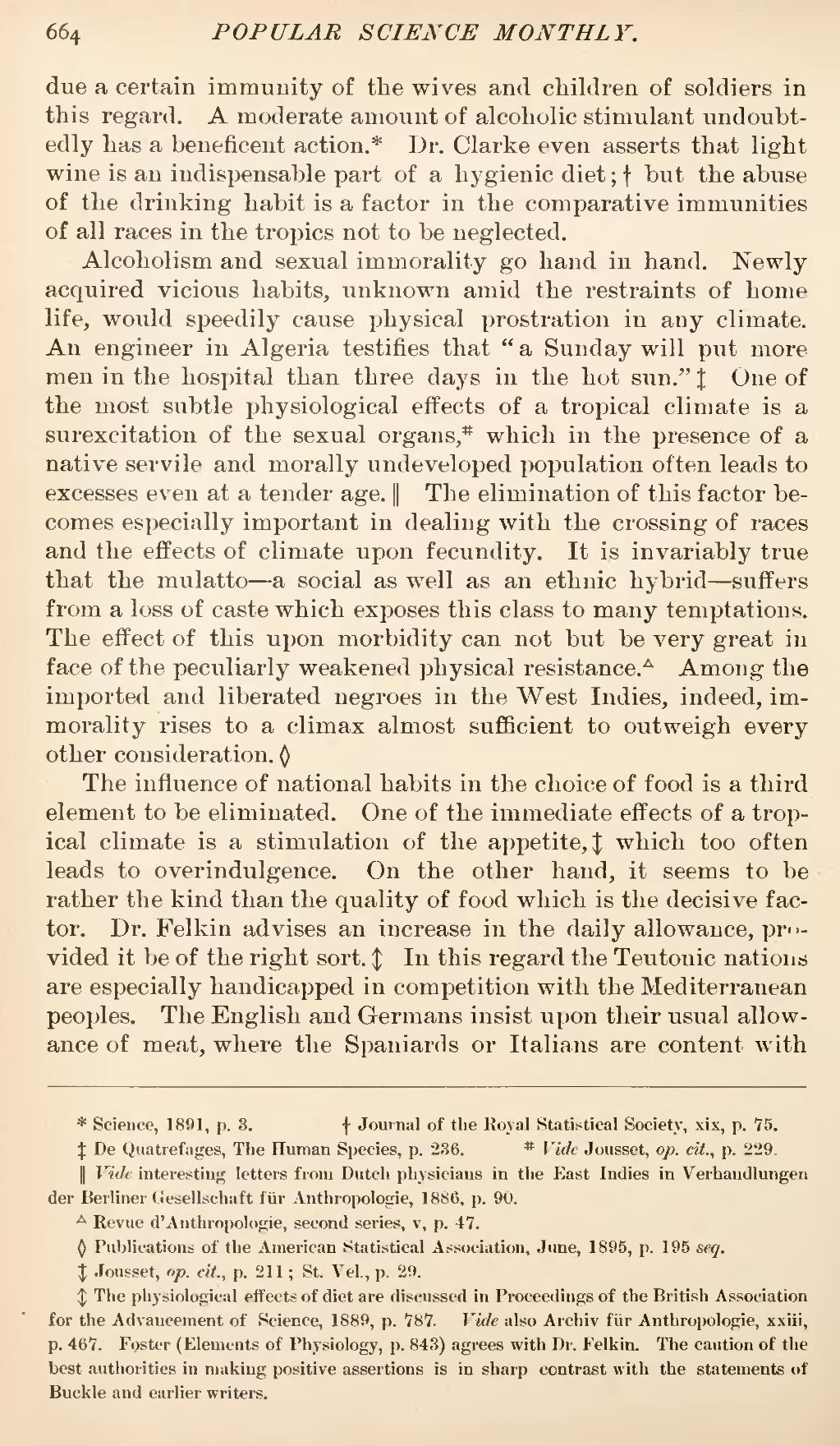due a certain immunity of the wives and children of soldiers in this regard. A moderate amount of alcoholic stimulant undoubtedly has a beneficent action.[1] Dr. Clarke even asserts that light wine is an indispensable part of a hygienic diet;[2] but the abuse of the drinking habit is a factor in the comparative immunities of all races in the tropics not to be neglected.
Alcoholism and sexual immorality go hand in hand. Newly acquired vicious habits, unknown amid the restraints of home life, would speedily cause physical prostration in any climate. An engineer in Algeria testifies that "a Sunday will put more men in the hospital than three days in the hot sun."[3] One of the most subtle physiological effects of a tropical climate is a surexcitation of the sexual organs,[4] which in the presence of a native servile and morally undeveloped population often leads to excesses even at a tender age.[5] The elimination of this factor becomes especially important in dealing with the crossing of races and the effects of climate upon fecundity. It is invariably true that the mulatto—a social as well as an ethnic hybrid—suffers from a loss of caste which exposes this class to many temptations. The effect of this upon morbidity can not but be very great in face of the peculiarly weakened physical resistance.[6] Among the imported and liberated negroes in the West Indies, indeed, immorality rises to a climax almost sufficient to outweigh every other consideration.[7]
The influence of national habits in the choice of food is a third element to be eliminated. One of the immediate effects of a tropical climate is a stimulation of the appetite,[8] which too often leads to overindulgence. On the other hand, it seems to be rather the kind than the quality of food which is the decisive factor. Dr. Felkin advises an increase in the daily allowance, provided it be of the right sort.[9] In this regard the Teutonic nations are especially handicapped in competition with the Mediterranean peoples. The English and Germans insist upon their usual allowance of meat, where the Spaniards or Italians are content with
- ↑ Science, 1891, p. 3.
- ↑ Journal of the Royal Statistical Society, xix, p. 75.
- ↑ De Quatrefages, The Human Species, p. 236.
- ↑ Vide Jousset, op. cit, p. 229.
- ↑ Vide interesting letters from Dutch physicians in the East Indies in Verhandlungen der Berliner Gesellschaft für Anthropologie, 1886, p. 90.
- ↑ Revue d'Anthropologie, second series, v, p. 47.
- ↑ Publications of the American Statistical Association, June, 1895, p. 195 seq.
- ↑ Jousset, op. cit, p. 211; St. Vel, p. 29.
- ↑ The physiological effects of diet are discussed in Proceedings of the British Association for the Advancement of Science, 1889, p. 787. Vide also Archiv für Anthropologie, xxiii, p. 467. Foster (Elements of Physiology, p. 843) agrees with Dr. Felkin. The caution of the best authorities in making positive assertions is in sharp contrast with the statements of Buckle and earlier writers.
